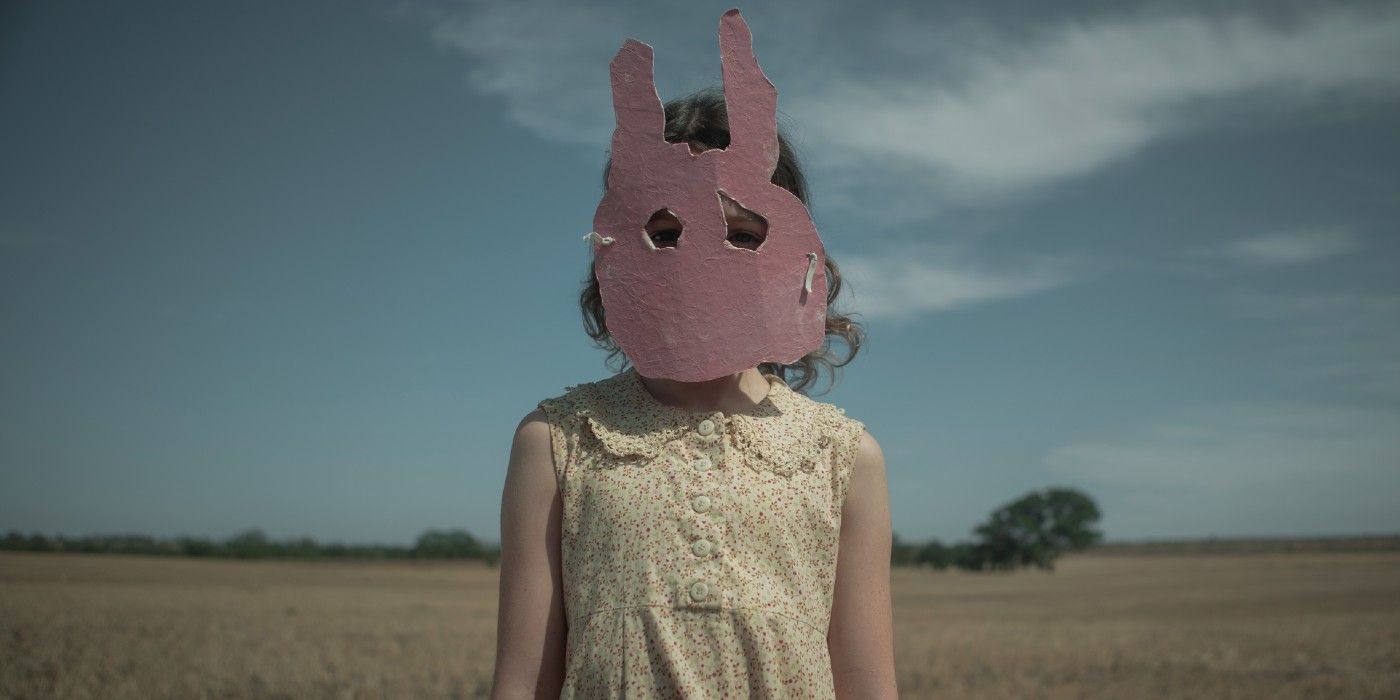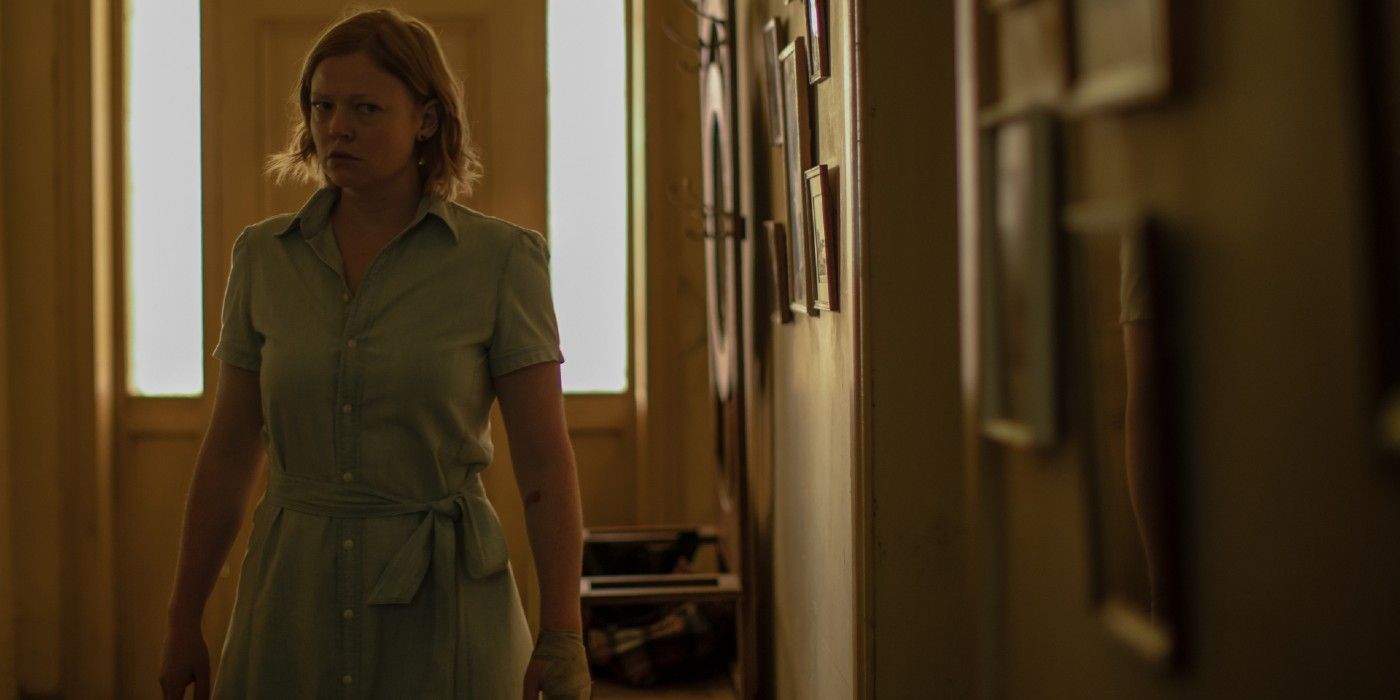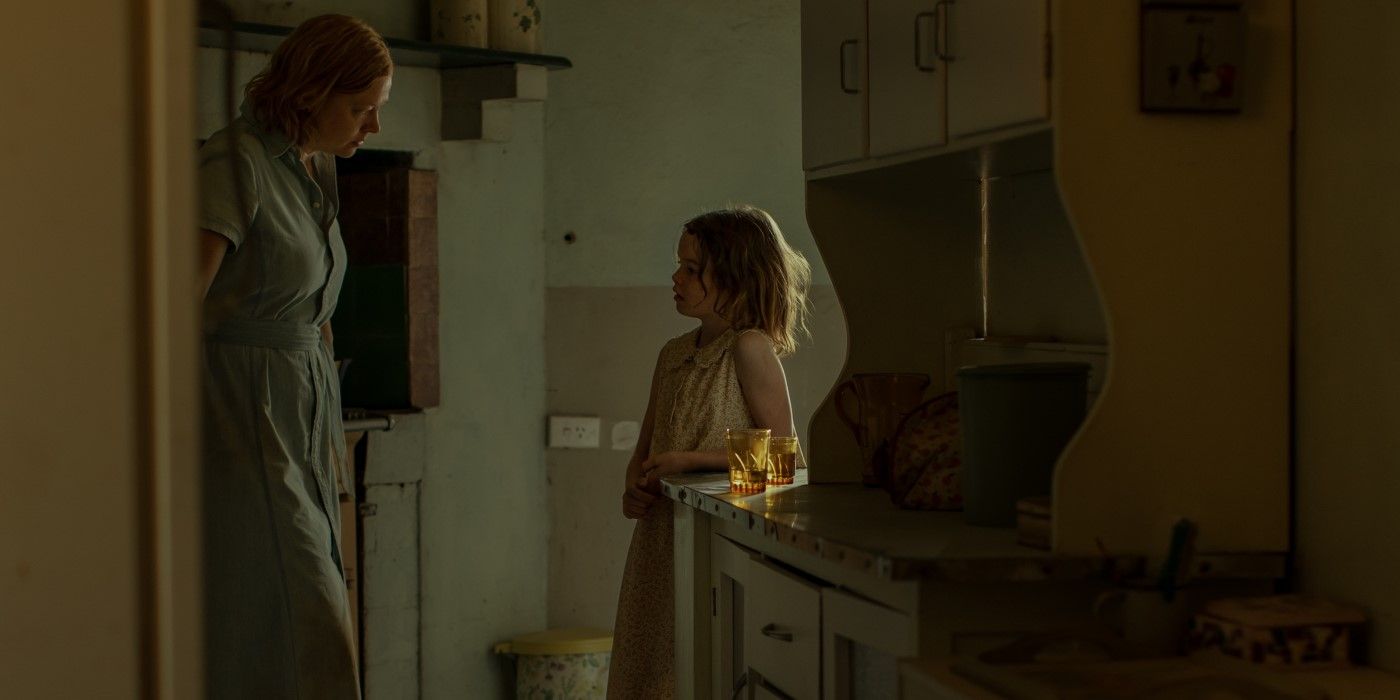It's become cliché to say that horror movies are all focused on exploring trauma, but that doesn't mean there aren't valid ways to incorporate trauma into the genre. The Australian psychological thriller Run Rabbit Run explores trauma, but it unfortunately lacks any rewarding new approach to familiar themes. Although the performances are strong, the plot is slow and repetitive, leading up to an underwhelming revelation and a vague climax. The trauma that the main characters experience should be tense and affecting, but instead it ends up mostly tedious.
Run Rabbit Run begins with the evocative image of Sarah (Succession's Sarah Snook) lying seemingly unconscious beside a river somewhere in the Australian outback. How she got there -- or even when that moment occurred -- is never quite clear, but director Daina Reid and cinematographer Bonnie Elliott continue creating striking images even as the plot goes in circles. Following that opening, Run Rabbit Run shifts to the suburbs, where Sarah works as a fertility doctor and lives with her seven-year-old daughter Mia (Lily LaTorre).
Strange things begin occurring almost immediately as Mia celebrates her birthday, and Reid conveys a general sense of unease between Sarah and Mia. They return home to find their garage door open and a white rabbit mysteriously left on the front stoop. Mia starts insisting that she misses her grandmother Joan (Greta Scacchi), even though they've never met. "I miss people I've never met all the time," Mia says in one of many unsettling yet ultimately meaningless pronouncements. LaTorre makes for an excellent creepy kid, but Mia's sinister potential remains in the same holding pattern for the entirety of Run Rabbit Run.
Mia soon adds a truly grotesque homemade rabbit mask to go along with her newfound pet, becoming increasingly volatile and demanding. When Sarah gives in and takes Mia to visit Joan in the remote nursing home where she's been living, she learns that Joan has been suffering from dementia. Joan seems to mistake Mia for someone named Alice, but then Mia proclaims that she actually is Alice. Mia finds old photographs of young Sarah with another young girl and asserts that she's the one in the photographs. Maybe she's been possessed, or maybe she's just lashing out? Mia could be troubled by grief over the recent death of her grandfather or by tensions between Sarah and Mia's father Peter (Damon Herriman).
Run Rabbit Run introduces all of these possibilities without fully committing to any of them, while also presenting the possibility that Sarah is the one who's coming unhinged. She's also grieving the death of her father and growing frustrated with Peter, especially after he announces that he and his current partner are trying for a child of their own. Sarah is estranged from Joan, often ignoring calls from the nursing home, and she doesn't want to talk about what drove her away from her mother. Instead of providing answers, Run Rabbit Run mostly repeats the same scare tactics, with shadowy figures looming in the background and Mia suddenly appearing or disappearing in places she isn't supposed to be.
Run Rabbit Run's themes of generational trauma and the pressures of parenthood recall acclaimed horror movies like Hereditary and fellow Australian productions Relic and The Babadook, but the result is closer to something like recent muddled psychological thriller Baby Ruby. There aren't enough scares for Run Rabbit Run to succeed as horror, and Reid and screenwriter Hannah Kent can never fully commit to any supernatural elements. The third-act reveal of a key incident from Sarah's past only partially explains what's going on, and the final shot hints at a more overtly menacing story that never comes into focus.
Snook remains compelling even as Sarah is cycling through the same actions and emotions over and over, and there's real anguish in her efforts to keep herself together and be a better mother for Mia than she believes her own mother was for her. Scacchi stands out in her handful of scenes as the alternately deranged Joan, but no one else in the supporting cast gets much to do. Herriman is especially wasted as the father who seems curiously disengaged from the turmoil between his daughter and her mother.
When Sarah and Mia travel to Sarah's childhood home, Run Rabbit Run makes the most of the neglected, dilapidated property, complete with an ominous shed full of creaking doors and dangerous metal tools. Like the themes of trauma, though, those elements don't rise very far above cliché, and Reid never uses them to their full potential. Horror movies that tackle mental illness and family tension still need to deliver the horror, but Run Rabbit Run comes off as a dull, meandering therapy session.
Run Rabbit Run premieres Wednesday, June 28, on Netflix.




